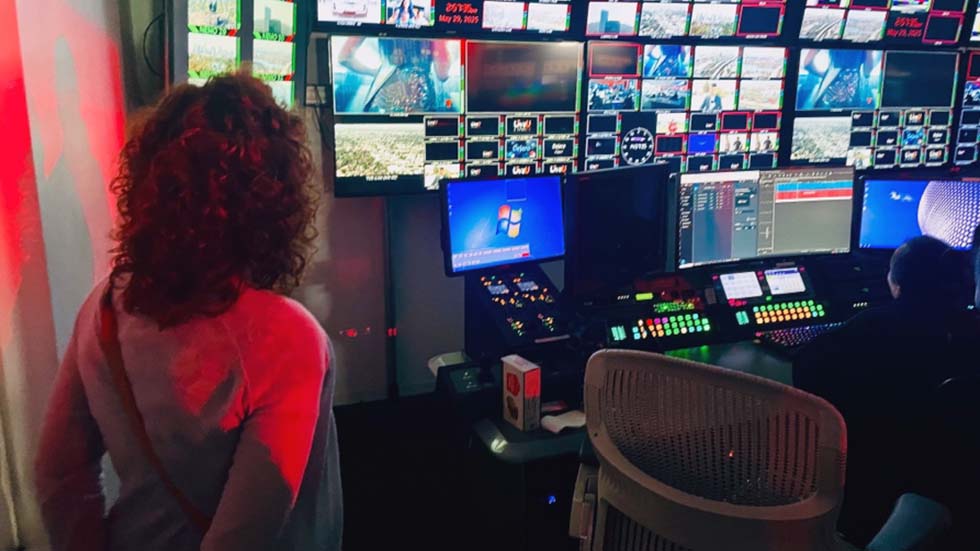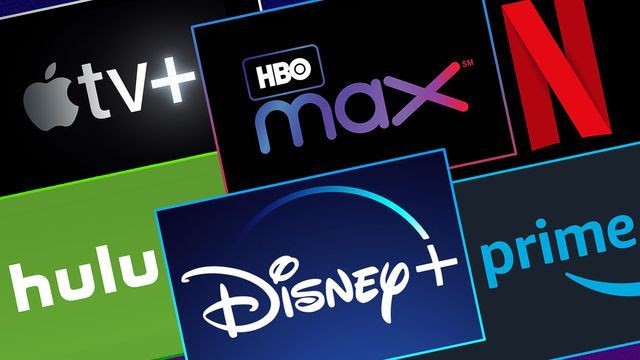FCC’s Anna Gomez Meets with TV Networks, Studio Execs and Unions
During meetings in California, Democratic commissioner stressed the importance of independent journalism and press freedom

WASHINGTON—Federal Communications Commission member Anna Gomez has wrapped up two weeks in California visiting broadcasters, television studio executives, entertainment-sector labor unions and companies in the space industry. The visits included meetings with representatives for ABC, NBC and Fox, Gomez said.
Gomez said the visits were designed to better inform her about the challenges facing the broadcast industry and how increased competition in the space sector can benefit consumers.
The visits came at a time amid mounting worries that some media companies and corporate executives might exert greater control over their news departments as a way to curry favor with the Trump administration. President Donald Trump has sued both CBS and ABC regarding their coverage of the 2024 presidential campaign, and broadcast networks are facing pressure from the FCC, which has been pushing companies to end fact-checking efforts and their DEI programs. The FCC is also investigating ABC, CBS and NBC over “news bias.”
Disney’s ABC settled the Trump suit for $15 million and Paramount Global is in talks about settling the lawsuit against CBS News regarding the editing of a “60 Minutes” interview with then-Vice President Kamala Harris during last year’s presidential campaign. Gomez has previously criticizedthe FCC's investigation into CBS.
So far this year, two senior executives at CBS News have left in response to concerns that their parent company might settle the Trump lawsuit as a way to gain FCC approval for the proposed merger between Paramount Global and Skydance.
“I was glad to meet with media executives to better understand the challenges they face in a changing media landscape and the ways in which the FCC can help support the broadcast industry,” Gomez said. “These visits also led to important conversations about the vital responsibilities that corporate parents have to defend their First Amendment rights and ensure their news divisions remain free of political interference. In a democracy, the public’s trust in news media is paramount, and it requires news organizations to prioritize independent reporting over outside political pressure.”
During her meetings with television studio executives in Los Angeles, Gomez’s office reported that she also discussed recent actions by corporate parents to exert greater influence over their news divisions in response to White House pressure. Gomez reminded corporate executives of the protections afforded to them and their media reporters under the First Amendment, and the importance of maintaining a free and independent press, her office said.
The professional video industry's #1 source for news, trends and product and tech information. Sign up below.
Those meetings included ones with representatives for ABC, NBC and Fox.
In addition to these meetings, Gomez also met with the leadership of two major labor unions in the entertainment industry to discuss efforts by this Administration to try to influence creative expression and control creative content. The meetings with SAG-AFTRA and the Writer’s Guild of America, West focused on ways in which these efforts could undermine artistic freedom, threaten workers’ rights, and impact the diversity of voices represented in film and television.
Gomez also visited established and emerging companies in Los Angeles and San Francisco that are part of the growing space economy. The goal of these visits was to learn about how these companies are contributing to the field, as well as to discuss ways in which the FCC can better promote competition in the space economy. Gomez visited Planet, Astranis, Rocket Lab, and K2 Space -companies with satellite manufacturing labs- as well as NASA’s Ames Research Center and Apple to learn about its partnership with Globalstar to provide emergency satellite connectivity.
“Space is an exciting frontier of discovery and innovation. Explosive growth in this sector, domestically and internationally, has meant new opportunities for entrepreneurs and visionaries, but it also raises new questions for regulators like the FCC,” Gomez said. “As our country increasingly relies on space-based connectivity to eliminate mobile dead zones, provide greater national security capabilities and lead space communications globally, the FCC must ensure a robust and competitive ecosystem exists that expands consumer choice, lowers costs and drives further innovation.”
George Winslow is the senior content producer for TV Tech. He has written about the television, media and technology industries for nearly 30 years for such publications as Broadcasting & Cable, Multichannel News and TV Tech. Over the years, he has edited a number of magazines, including Multichannel News International and World Screen, and moderated panels at such major industry events as NAB and MIP TV. He has published two books and dozens of encyclopedia articles on such subjects as the media, New York City history and economics.

